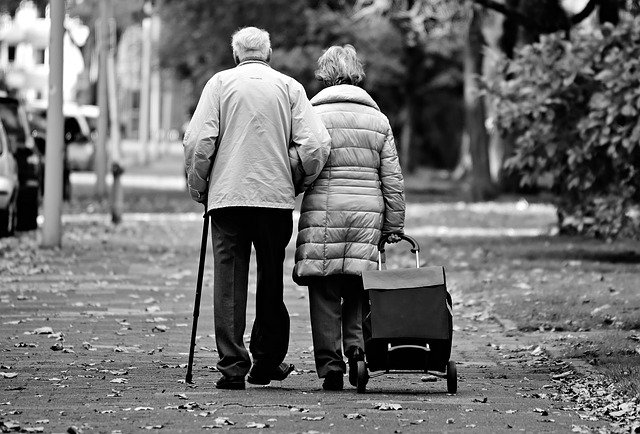We’ve spent much of the pandemic discussing the grave physical dangers for older adults who contract COVID-19.
As of late January, people age 65 and older accounted for approximately 74% of the nearly 850,000 deaths from COVID-19 in the United States. Add in individuals between 50 and 64, and that percentage creeps up to nearly 93%.
One in 100 older Americans have died from the virus. For people younger than 65, that ratio is somewhere around 1 in 1,400.
COVID-19 carries great risk for our older population. That remains the case even as we’ve surpassed the first anniversary of vaccines becoming available.
But what hasn’t been discussed nearly as much as the consequences for the physical health of the older adult population is the toll this pandemic has taken on their mental health.
Why Older Adults May Be Struggling
The mental health ramifications of nearly two years’ worth of a pandemic certainly haven’t been ignored, but much of the focus of the emotional toll has been on young families.
Children who were used to seeing friends and socializing each day at school suddenly went home and didn’t go back. Online learning, at least for a while, became the norm. Many parents spent time doing double duty facilitating academics for their grade schoolers and entertaining nonschool-age little ones while attempting to work remotely.
Youth suicide attempts soared as a result of the pandemic. Parents were nearly three times more likely than those who don’t have children to have been diagnosed with a mental health disorder.
These populations, of course, didn’t carry nearly the physical risk of older adults. In addition to concerns about contracting COVID-19, many older adults who already spent a good deal of time alone suddenly faced even longer periods of isolation and a variety of other concerns.
According to the 2021 International Health Policy Survey of Older Adults, seniors in the United States — particularly those who are Black or Hispanic — were more likely than people of similar ages in other countries to face greater financial difficulties as a result of the pandemic.
Additionally, 37% of older adults in the U.S. who have multiple chronic conditions reported pandemic-related disruptions in their care — easily the highest percentage of the countries surveyed.
Many older adults have been unable to see family members for two years, or, if they have been able to, it has happened in much different circumstances. A sense of loneliness has seemed inevitable, with many seniors rarely leaving their homes.
A 2021 AARP survey on how older adults were managing the pandemic found that 69% of people age 50 and older have an increased level of depression and 68% a higher level of anxiety as a result of the pandemic. Even more said that the COVID-19 crisis has raised their level of concern about the future (77%) and general worry (76%).
It’s a natural conclusion to imagine that those who have struggled with their physical health might feel a greater toll on their mental health, and a National Poll on Healthy Aging confirms that. Twenty-four percent of adults who said that their physical health is fair or poor were more likely to report worse mental health.
How to Ensure That Older Adults Get the Care They Need
Let’s not leave out some hopeful news: Two-thirds of respondents in a University of Michigan poll of more than 2,000 older adults nationwide say that their current mental health is excellent or very good. More than 80% say that their mental health is as good as or better than it was 20 years ago.
But that same study found that certain groups — people ages 50-64, women, those who have a higher level of education, and those who are in below-average physical condition — are particularly susceptible to mental health concerns as a result of the pandemic.
“These findings show we need to continue to look for and address the mental health effects of the pandemic and connect people to treatment resources,” said Lauren Gerlach, D.O., M.Sc., lead author of a study based on that University of Michigan poll and a geriatric psychiatrist at Michigan Medicine. “Poor mental health can decrease functioning, independence, and quality of life for older adults, but treatment can significantly help.”
Gerlach and her fellow researchers recommend that health providers screen older adults for symptoms of depression, anxiety, and sleep problems that may have formed from or been exacerbated by the pandemic.
One other key for healthcare providers is improving access to and providing clarity around telehealth services. Simply having online platforms isn’t enough if older adults — or any other patients — struggle with how to use them.
With these simple screenings and by providing greater access to and ease of use for virtual platforms, we can make sure that one of our most vulnerable populations has more of their mental health needs met — both during the pandemic and well into the future.
About Mount Regis Center
Mount Regis Center provides personalized residential and outpatient programming for adults age 18 and older who are struggling with substance use disorders and co-occurring mental health concerns. The facility, which is located in Salem, Virginia, also offers a specialized residential treatment track for young adults ages 18-28. Treatment at Mount Regis Center is a holistic, patient-centered experience that empowers each adult to make sustained progress toward improved health and long-term recovery. For more information, please visit www.mtregis.com.


